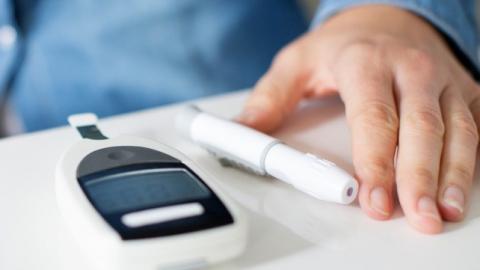
Our final installment on diabetes is about the other lab work that is recommended for every patient with diabetes. Last time we talked about a urine test called microalbumin, and how it is often the first warning sign of kidney damage. The other way to check your kidneys is with a blood test. The simplest was to explain the test is by recognizing that the kidneys are basically filters for the blood, and the measurement of that process is the glomerular filtration rate (GFR), and is expressed in cc/min or ml/min. We use this test to keep a close eye on potential kidney damage.
Why all this talk about the kidneys? In the United States, diabetes and hypertension are the top 2 causes for chronic kidney failure and dialysis, and high blood pressure is a common condition among patients with diabetes as well. Remember the ACE-I and ARB mentioned in the last post? These medications can slow the process, and often can even prevent kidney damage if started early and are monitored frequently. So how often do I need blood tests? It depends on your situation and health of course, but we often recommend performing labs every 3 months. This is in part due to the other test we use in diabetes called the A1c. The A1c is an indirect measure of how high the blood sugar is on average over a 3 month period. It works by taking advantage of a biochemical reaction that happens in every person’s blood stream. There is an exposed protein on the hemoglobin molecule that reacts with glucose in an irreversible fashion, and red blood cells live for 90 days (the carbons in the molecule are numbered with an alphanumeric code, so that everyone knows “where” you are talking about in a chemical reaction, and this happens to be the “A1c” portion). Way more information than you ever wanted about a lab test, but it helps to know that it doesn't matter if you’re fasting the day of the lab draw, having a bad day, or any other variable, because it truly is a three month average (For more information about how the A1c is used for treatment and prognosis in diabetes, see the diabetes section of our ).
What other tests do I need? We check cholesterol because heart disease and diabetes are closely related. We also check thyroid function because you are more likely to develop a thyroid problem if you’re diabetic. There you have it: Annual eye exam, annual foot exam, annual microalbumin, and quarterly blood tests for your A1c, thyroid, cholesterol and kidney function. These are the cornerstones of care. You and your healthcare provider can use this information to help keep you well and living a long and healthy life.
- Log in to post comments

